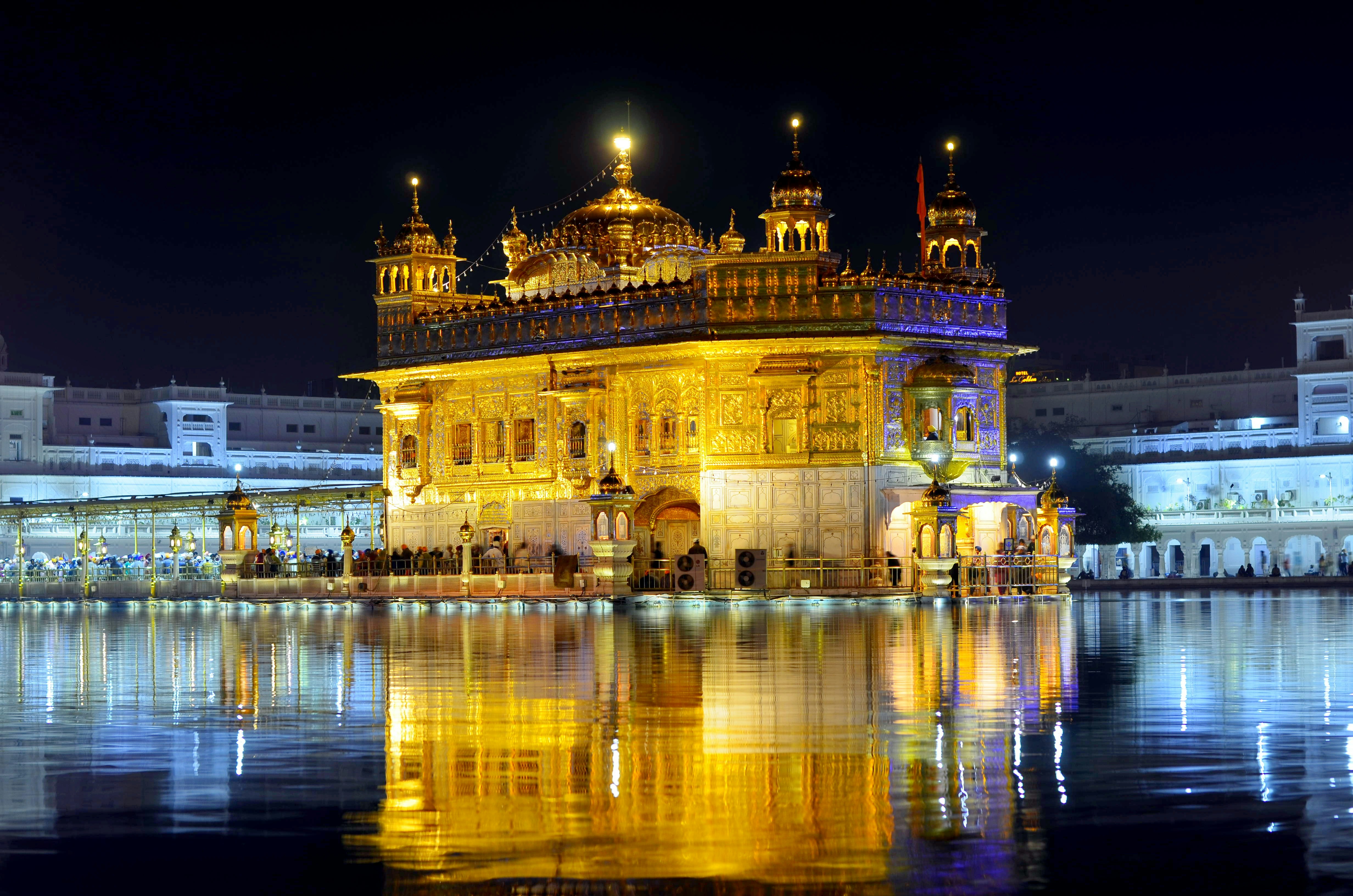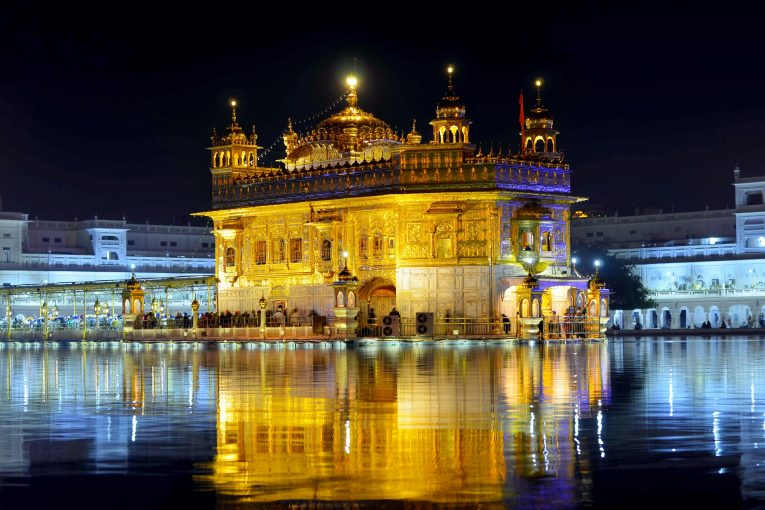
By Praniti Gulyani
Even though I am not a particularly religious individual, I’ve always felt spiritually inclined towards the Golden Temple in Amritsar. A gurdwara (house of the supreme guru) in its own right, this magnificent location always drew me in with its encompassing sacred pond and rainbow-colored throngs of endless devotees. Much as I loved the Golden Temple, it was over six hours away from where I lived. This is why it was not logistically possible to go there as much as I would have liked to do so.
This distance only increased when I moved to the U.S.A., and I found myself making peace with the glistening picture of the sacred location on the wallpaper of my phone screen during particularly tough college nights.
This summer, when I visited India, The Golden Temple was one of my first go-to  locations. As I pulled up into the spice-flavored winds of Amritsar and began the walk towards the sacred place of worship, the synchrony between the water, the sun and surrounding melody of human conversation warmed my heart. In addition to the soft tunes of religion, I was most impacted by the demonstrations of rock-solid discipline. For instance, a young boy entered the temple clad in a pair of shorts.
locations. As I pulled up into the spice-flavored winds of Amritsar and began the walk towards the sacred place of worship, the synchrony between the water, the sun and surrounding melody of human conversation warmed my heart. In addition to the soft tunes of religion, I was most impacted by the demonstrations of rock-solid discipline. For instance, a young boy entered the temple clad in a pair of shorts.
Since this was against the norms of the gurdwara, he was not allowed to go inside. His parents brought him a pair of ankle-length pants from the nearby store, and—after changing—the family went into the place of worship together.
Insignificant as this incident may sound, it helped me recognize how softness and toughness can truly co-exist. Amidst the softness of the hymns, the somewhat hard-and-fast rules of discipline persisted in a manner that was surprisingly not mutually exclusive.
In fact, both these elements worked together to elevate the appeal of the location in a manner that is just and inclusive. This is when I recognized that rules—no matter how stringent they might come forth as—are actually an effective way to establish balance and equality.
As I stood in the queue that led up to the pace of worship, we were instructed to switch off our phones. With our eyes away from our screens, our attention turned inwards. Instead of the distractions that were perched on the thick shoulders of our screen-based applications, we focused on our inner selves: our thoughts, desires, and dreams. However, instead of the usual prayers for personal health, happiness and success, I found myself thinking about my three-person family.
Intrigued by the workings of the solar system, I often associated my people with the orbital movements of celestial bodies. Resembling the epicentral quality of the sun, my people were the focal point of my life. However, instead of a single epicenter: I had three.
Away from the cacophony of my everyday life, I closed my eyes and prayed for the well-being of my three epicenters. Their presence empowered me, illuminated me, and filled me with the golden glow of realization that was reflected by the shimmer of the holy turrets.
Increasingly astronomical as this thought may sound, at that moment I knew that if the sun ever chose to descend from the sky and build its home on the Earth, it would be here—in The Golden Temple of Amritsar.

